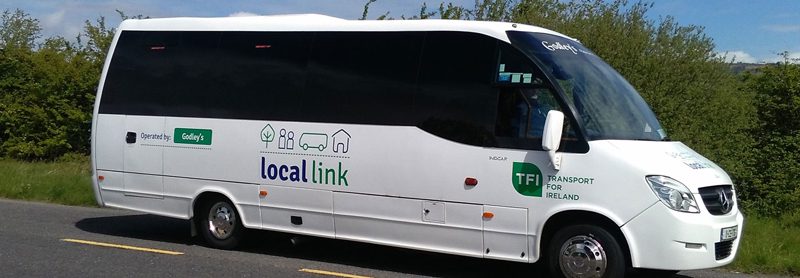Many people are being confined to their home because of the poor transport options available in rural areas, according to Seamus Boland, CEO of Irish Rural Link (IRL), the national network representing the interests of rural communities.
It is continuing its drive for the provision of more rural transport. This week it called for more investment in rural transport ahead of the National Transport Authority’s appearance before the Transport Oireachtas Committee.
“The new drink driving and unaccompanied learner driver laws have really brought to the fore the dependency people living in rural areas have on a car. IRL welcomes these new laws, given that most road deaths are on rural roads,” said the CEO.
However, because of the poor transport options available to people in rural areas, many people are confined to home. We welcome that the Local Link evening services have been extended but not all the services in the pilot scheme have been kept and it is not servicing every town and village, nor some of the more rural counties.
“The proposals put forward for an Uber-style service would be welcome, especially in areas where there is no hackney or taxi service and both these transport options should be explored further,” he said.
Morning after
On the new drink driving laws, people are concerned about the morning after and have noticed an increase in Garda presence in the mornings of weekends, said the IRL CEO. The situation, he contended, is extremely difficult for people relying on their cars to get to work and college.
“Even when people do take the Local Link service or taxi or hackney home on a night out, they still run the risk of being over the limit in the morning and losing their licence on the spot.”
The unaccompanied learner driver laws are also impacting on people, especially those who have had to buy a car for the first time because they are starting their first job or are going back to work after a long period, the IRL CEO said.
With the increase in the number of third level students living at home and commuting to college, due mostly in part to lack of affordable student accommodation, it will make it difficult for students where parents are working and unable to drop them to college or accompany them in the car.
Another group of people affected, Seamus said, are lone parents who need a car to get children to school and hobbies. “They may have only started driving because of this or are returning to education or training to gain employment and would not always have a full licence holder available to them to accompany the drive,” he said.
Waiting times
“Access to transport is always cited by community education providers as one of the barriers to education and training. Real investment by Government must now be made in rural transport.
“A range of appropriate transport models must be put in place for areas to ensure people do not become further isolated or further removed from employment and other services,” the CEO said.
“The waiting times for driving tests must be reduced and more efforts made to reduce the waiting times now that the laws have changed around provisional licence holders.”
